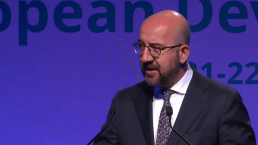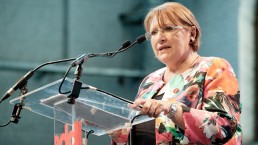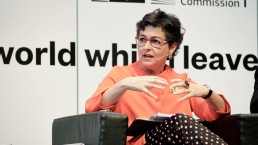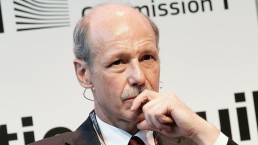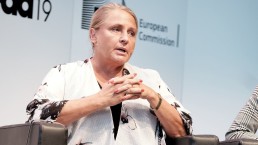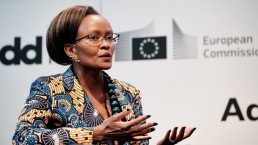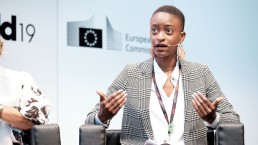Under the theme of “Addressing inequalities: building a world which leaves no one behind“.
EDD19 hosted innovative, creative and inclusive ideas on how to succeed the agenda 2030.
The main addressed topics aimed to understanding why inequalities matter for sustainable development, understanding the structural causes of inequalities and how working better together through more effective policies to address inequalities.
EDDs provides an avenue for international and local actors, donors, civil society and the Diaspora and to come together to discuss on practical ways of addressing inequalities to foster inclusive and sustainable development.
The high level session “Education and Employment opportunity for all: overcoming inequalities through inclusive socio-economic development” organized by a consortium of stakeholders from the North and South, from local and international level and actors from small scale and global scale will discuss about best practices and instruments that enable eradicating barriers to access to quality education and job creation by addressing structural factors that underpin underemployment and sustain inequalities.
Speakers:
Marie-Louise Coleiro Preca
Former President of Malta and UNIDO Good will Ambassador and Patron of Global Africa
Arancha Gonzalez
Executive Director - ITC
Philippe Scholtès
UNIDO Managing Director of Programme Development and Technical Cooperation
Marie Chantal Uwitonze
CEO – MACH CONSULTING
Marita Mitschein
– SAP SE –
Caroline Kamaitha
Vice President Africa – SES Networks
Inota Cheta
Young Leader – Zambia
Papa Sarr
General Delegate for Entrepreneurship - Republic of Senegal – Government of the Republic of Senegal
Moderator:
Raj Kumar
President & Editor-in-Chief – Devex
Key Points:
- Identify the barriers standing in the way of people’s access to education.
- Promote circular migration and see Africa as an investment opportunity.
- Address the skills mismatch by mapping the skills needed against the skills taught.
- Ensure that what is taught in schools is what the market needs in the future.
Synopsis :
According to a World Bank report, learning levels are alarmingly low in Africa and this severe learning crisis is hampering economic development. When people have access to education, they can start to overcome poverty. It is essential to identify the barriers that hamper people’s access to education. Issues such as lack of adequately trained teachers, poor conditions in schools, difficulties accessing education, for example, for children living in rural areas, need to be examined in detail and solutions identified.
Europe and Africa need to develop a common ambition to solve youth unemployment problems. Senegal is trying to move forward with circular migration policies – policies that allow talent to move back and forth between the two continents more easily. Easier access to visas and residence cards will help that circular migration process. There is a vibrant younger generation in Africa who are increasingly well trained and who have the capacity to transform the continent’s economies and turn Africa into a big investment opportunity. There is a skills mismatch in Africa between what universities are teaching and what the market needs. There are a lot of people being trained in the humanities in Africa.
However, what Africa needs most of all are people who can work with machines, who have digital skills and who can build infrastructure. Mapping skills that are really useful against the skills that are taught is a good way to tackle the issue. The nature of the job market is changing and so it is all the more important to take that into account and to ensure that what is taught in schools is what the market needs. Rather than being too focused on existing industries, such as on the needs for more accountants or lawyers, it is important to look at where demand will be in the future. For example, the renewables sector is an area that has a lot of job creation potential. Insight Small businesses have the potential to create many new jobs, but too many get stuck at the micro level. They often need assistance to help with marketing and to grow.
Insight :
Small businesses have the potential to create many new jobs, but too many get stuck at the micro level. They often need assistance to help with marketing and to grow.
About the European Development Days :
Europe’s leading forum on international partnerships since 2006
The European Development Days (EDD) are Europe’s leading forum on international partnerships. Organised by the European Commission, the forum brings key actors together to share ideas and experiences in ways that inspire new partnerships and innovative solutions to the world’s most pressing challenges.
Visit the website here



